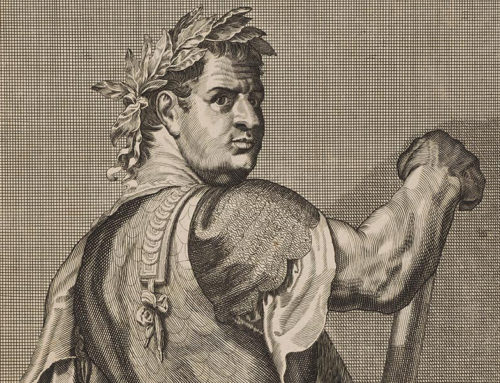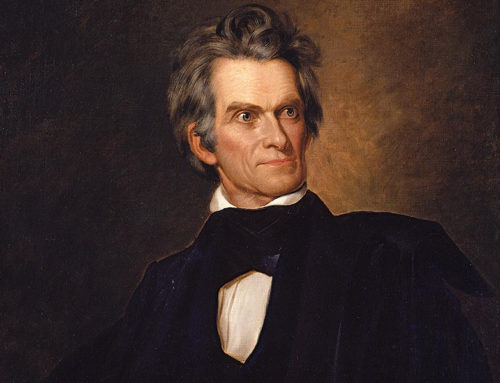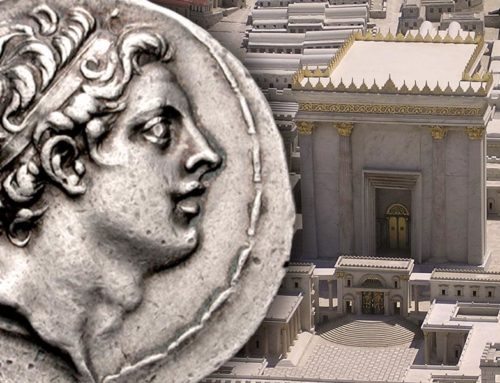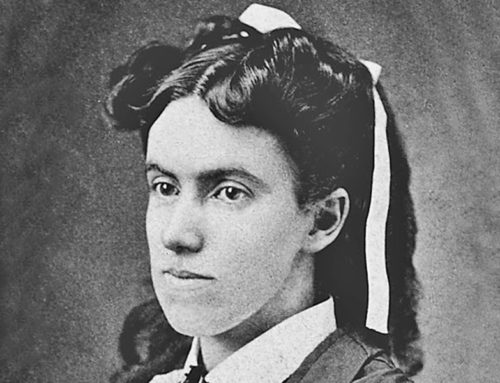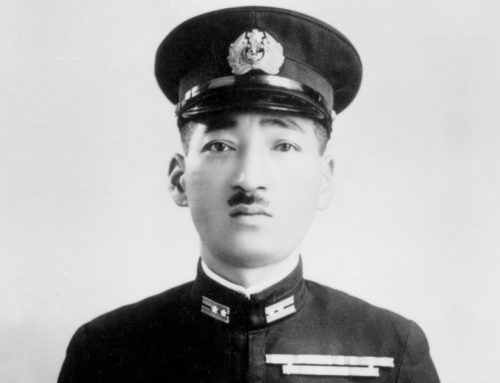

“These six things doth the Lord hate: yea, seven are an abomination unto him: a proud look, a lying tongue, and hands that shed innocent blood, an heart that deviseth wicked imaginations, feet that be swift in running to mischief, a false witness that speaketh lies, and he that soweth discord among brethren.” —Proverbs 6:16-19
Aaron Burr Arrested for Treason,
February 19, 1807
 ost Vice Presidents of the United States both serve out their term and then die in obscurity. There are exceptions — fourteen became President, eight of them because the President died during their term. Some of the Veeps lived interesting lives — John Tyler, for instance, had opposite political convictions of his own party and became the original Dr. No by using the presidential veto against his own Whig-dominated Congress. Another, Theodore Roosevelt, became one of the most famous and powerful Presidents of American history. The life of Vice President, Aaron Burr, however, took a dramatic nose-dive after his considerable political successes. He was accused of murder by both New York and New Jersey for killing Founding Father Alexander Hamilton in a duel. Two years after his Vice Presidency, Burr was arrested for joining a conspiracy to lead a rebellion against the United States and he stood trial for treason. Former Vice President Aaron Burr died in New York City, remembered much more for vice than presidency.
ost Vice Presidents of the United States both serve out their term and then die in obscurity. There are exceptions — fourteen became President, eight of them because the President died during their term. Some of the Veeps lived interesting lives — John Tyler, for instance, had opposite political convictions of his own party and became the original Dr. No by using the presidential veto against his own Whig-dominated Congress. Another, Theodore Roosevelt, became one of the most famous and powerful Presidents of American history. The life of Vice President, Aaron Burr, however, took a dramatic nose-dive after his considerable political successes. He was accused of murder by both New York and New Jersey for killing Founding Father Alexander Hamilton in a duel. Two years after his Vice Presidency, Burr was arrested for joining a conspiracy to lead a rebellion against the United States and he stood trial for treason. Former Vice President Aaron Burr died in New York City, remembered much more for vice than presidency.
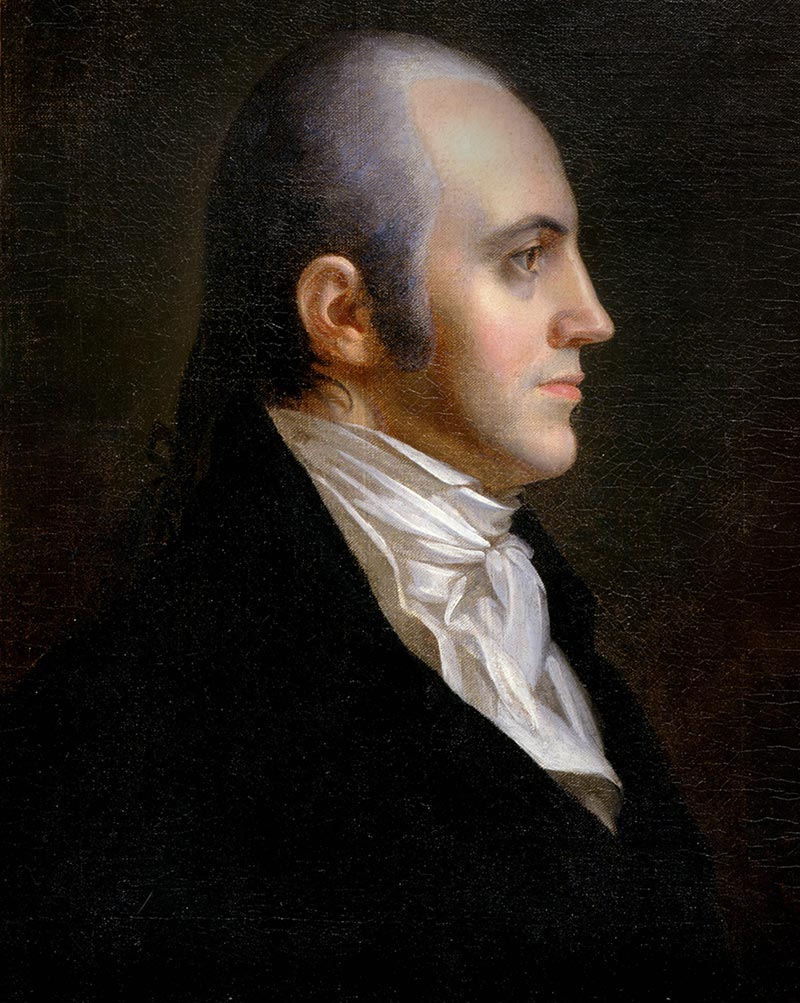
Aaron Burr, Jr. (1756-1836), third Vice President of the United States (1801-1805) under President Thomas Jefferson
Aaron Burr, Jr., was born in Newark, New Jersey with all the advantages a son could have: his father was one of the foremost Presbyterian ministers in America and second president of the College of New Jersey (Princeton). His mother was Esther Edwards, the daughter of the famous preacher, Jonathan Edwards. His mother, father, and grandfather all died within a year of each other, leaving two-year-old Aaron an orphan. He was taken in by his twenty-one-year-old uncle, Timothy Edwards. Aaron entered Princeton as a sophomore at the age of thirteen, and excelled in all his classes. He then studied for two years for the Gospel ministry before giving that up to read law and enter that profession. He was well suited — a powerful orator and formidable intellect.
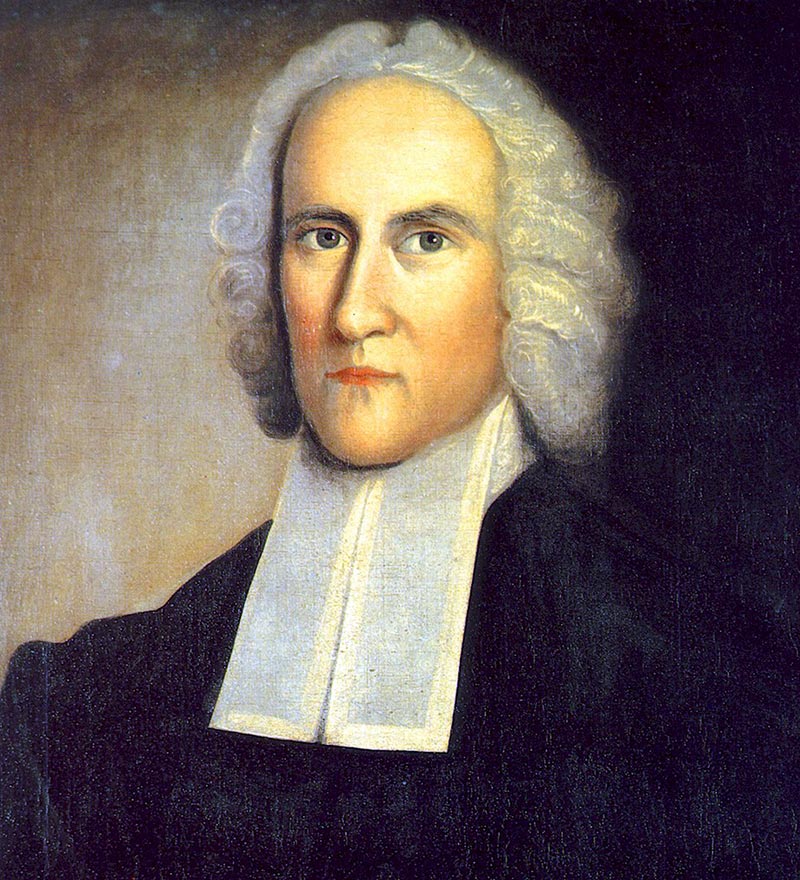
Jonathan Edwards (1703-1758), maternal grandfather of Aaron Burr, Jr.
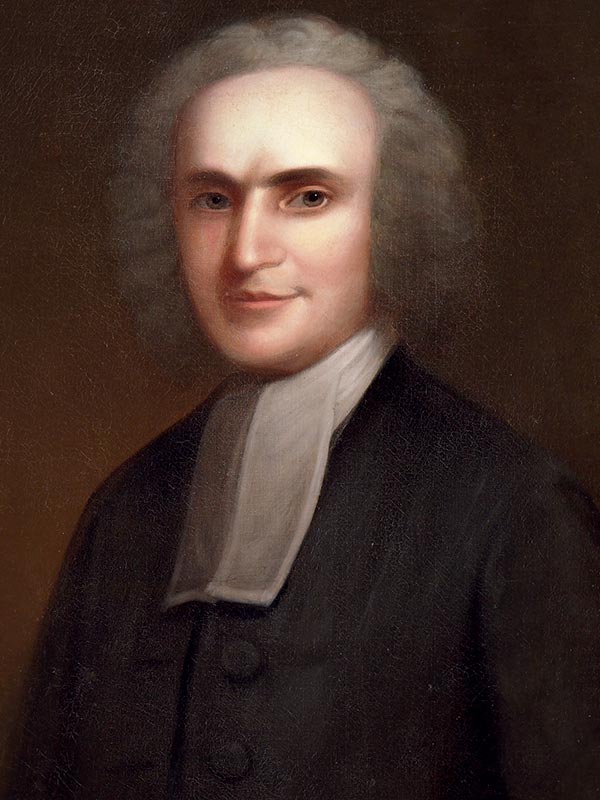
Aaron Burr, Sr. (1716-1757), Presbyterian minister and a founder of the College of New Jersey (now Princeton University)
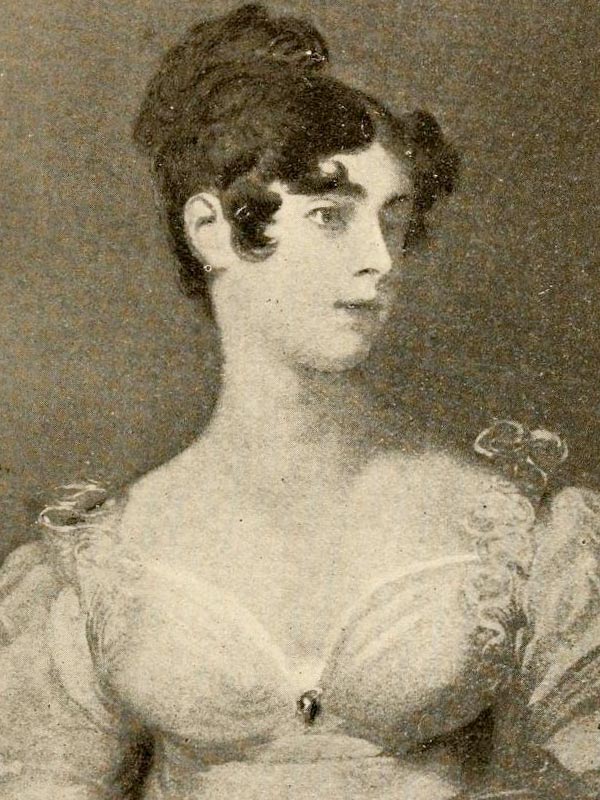
Esther Burr, née Edwards (1732-1758), third oldest of eleven children of Jonathan and Sarah Edwards
When the War for Independence began, he quickly joined the fight, eventually rising to the rank of Colonel for his zeal, courage, and perseverance on the battlefield. He began his political career as a New York State Assemblyman, then Attorney General and then Senator from New York. He ran for President in 1796, finishing fourth and again in 1800, when he received tying electoral votes with Thomas Jefferson. Congress chose Jefferson. Burr became Vice President, but now spurned by his political party for opposing Jefferson. By all accounts, he was a fair and impartial Senator and VP, but a man of decided opinions who made political enemies easily. He founded the Manhattan Company Bank and used it to finance Democratic-Republican Party candidates.
Burr fought two duels. In the second, while Vice President, he killed Alexander Hamilton, infuriating the Federalists. After leaving the Vice Presidency in 1805, under a cloud of debt for failed land speculation and a man without a political party, with murder charges hanging over him in New Jersey and New York for the death of Hamilton (he was never tried), Burr travelled to the western frontier. He organized a small expeditionary armed force with which he hoped to claim land for speculation, and with which he said he would be ready to fight if the United States went to war with Spain over Florida. He joined with General James Wilkinson, American commander in chief of American forces in New Orleans, an arch conspirator himself. Wilkinson told President Jefferson that Burr was up to no good, receiving pay from Spain and conspiring against the United States. Arrested and released twice by federal officers, Burr fled toward Florida but was arrested in the Mississippi Territory now a part of Alabama.
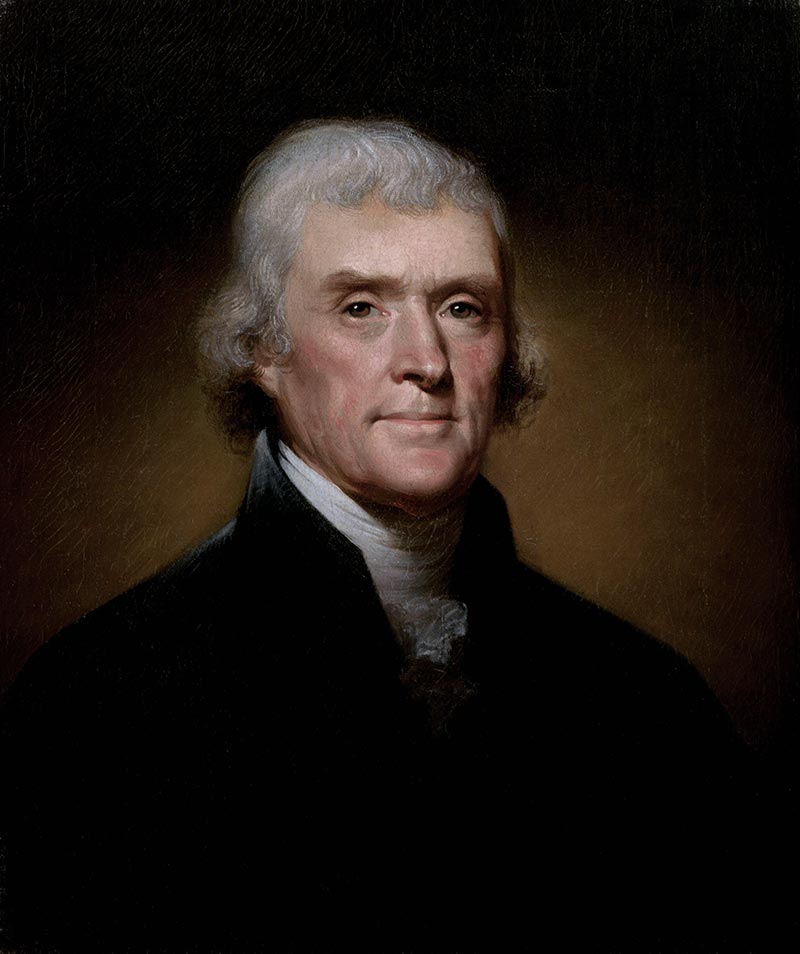
Thomas Jefferson (1743-1826), third President of the United States (1801-1809)
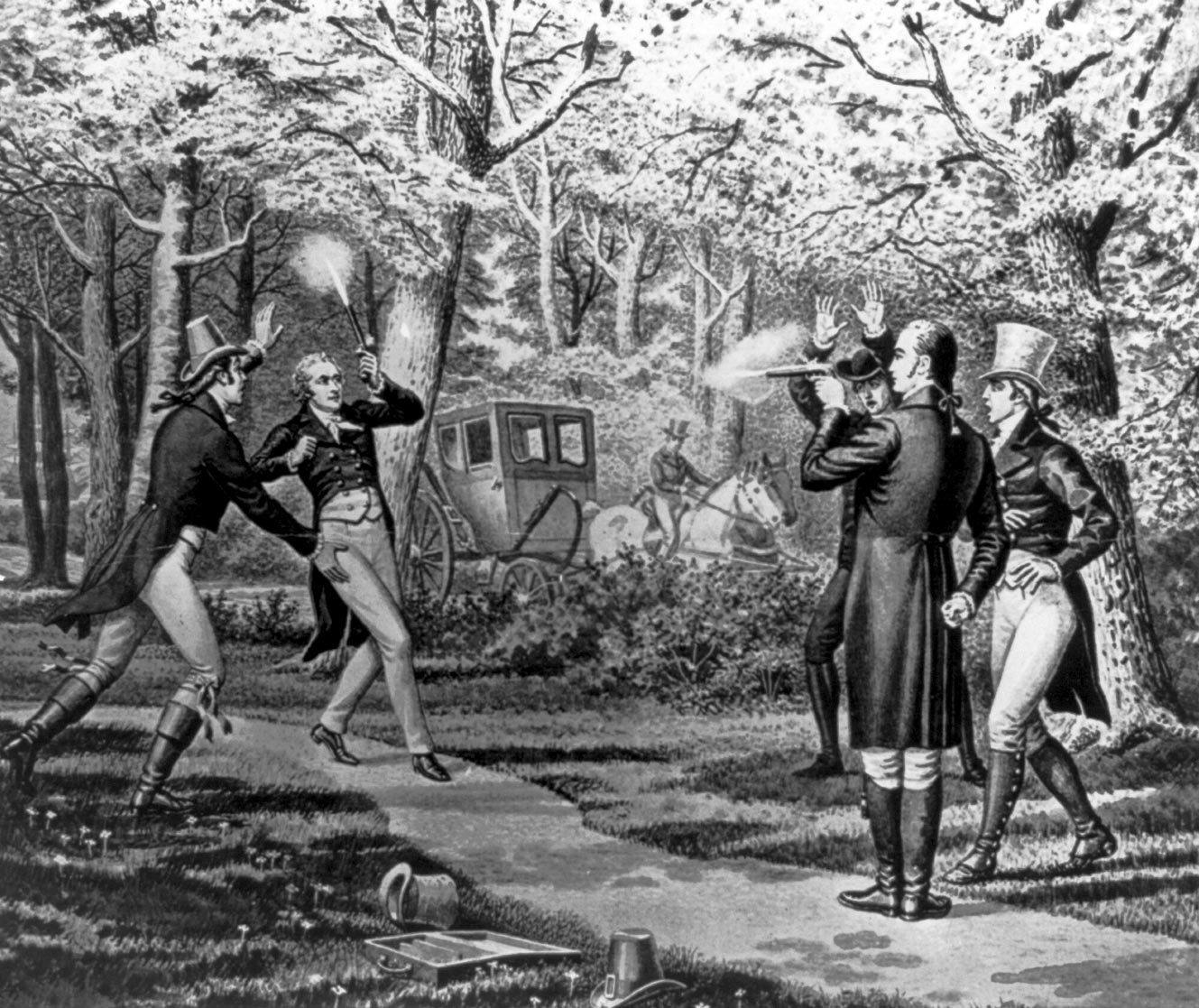
Aaron Burr and Alexander Hamilton duel to the death, 1804
Evidence seemed to indicate that Burr had created a filibustering expedition to set up an independent country in Mexican territory, and tempt western states to join him — a misdemeanor violation of the Neutrality Act. President Jefferson, however, wanted a treason conviction, and, after four attempts, got a grand jury to agree to a trial to be held in Federal District Court in Richmond, Virginia. The treason trial was one of the first test cases of the Treason Clause in the Constitution, with all-star casts of lawyers on both sides, with Thomas Jefferson calling the shots for the prosecution from the White House. John Marshall, chief Justice of the Supreme Court presided. Despite complicated details of Burr’s movements and apparent plans for the future, Marshall declared, in a narrow ruling, that Burr’s case did not meet the Constitution’s definition of treason. Although acquitted, Burr fled to England to escape creditors, and traveled through many countries of Europe. He even tried to drum up support to overthrow the Mexican government. After four years and a rebuff from Napoleon Bonaparte, England sent him packing. He returned to New York under an assumed name and returned to his law practice. The colorful and enigmatic Aaron Burr did not live up to his family heritage, and he died virtually unknown and un-mourned.


